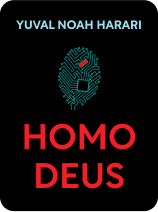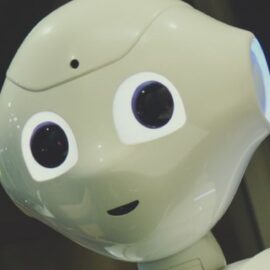

This article is an excerpt from the Shortform book guide to "Homo Deus" by Yuval Noah Harari. Shortform has the world's best summaries and analyses of books you should be reading.
Like this article? Sign up for a free trial here .
Can humans ever become gods? And if so, what will human divinity look like?
Gods and humans are seen as two fundamentally different life forms, but what if humans can one day become gods? Theoretically speaking, humans can indeed become god-like, but not in the biblical sense of the word. God-like humanity is closer to the Greek or Hindu devas—flawed but powerful beings who have emotions and limitations.
Keep reading for the answer to the question: can humans become gods?
Can Humans Ever Become Gods?
According to Yuval Noah Harari, an Israeli public intellectual and a professor of History, humanity is already accomplishing feats once considered to be “acts of God.” For example, ancient civilizations once considered a healthy harvest to be a “gift from above.” In contrast, modern humans rely on science and technology to create favorable harvest conditions, even when the natural environment is harsh.
In the near future, he projects, technological and medical advances will allow humans to take on some qualities that are associated with divine beings. In their quest for divinity, humans will likely “upgrade” along the following paths:
Biological
Biological manipulation will likely be the first step toward “god-like” status. If scientists can discover the biology behind happiness and immortality, they’ll likely be able to manipulate almost anything within the human body through genetic alterations. This means that, for the right price, anyone could become a god-like being with immense strength, intelligence, or sensuality. Today, people are already experiencing the early stages of this development through hormonal manipulation and DNA coding.
Cybernetic
Cybernetic augmentation will likely follow biological manipulation. Cybernetic augmentation is the combining of organic and inorganic materials in the human body. This would allow people to remove parts of the body that are threatened by decay and replace them with more durable material. It would also allow people to interact with technology around the world with just their thoughts. While this may sound like something out of Star Trek, people have already begun to combine inorganic materials with their bodies. In the medical field, cybernetic limbs and hearts are used to sustain life. In the technological field, “mind-reading” helmets allow people to control devices with their thoughts.
Inorganic
Inorganic assimilation may follow cybernetic augmentation. Taking cybernetic augmentation one step further, inorganic assimilation is the process of moving one’s consciousness into an inorganic body. Neural networks would be replaced with hardware, and people could live in both the physical and virtual worlds at the same time. For example, if a human mind could be transferred to an inorganic body, the newly formed being could hypothetically explore the internet, see out of connected cameras, and move their new form using the electrical impulses generated from the brain. This would allow humanity to abandon its organic form and become practically immortal. Space exploration and recolonization would become a more realistic concept as inorganic material can survive harsher environments than flesh and bone.

———End of Preview———
Like what you just read? Read the rest of the world's best book summary and analysis of Yuval Noah Harari's "Homo Deus" at Shortform .
Here's what you'll find in our full Homo Deus summary :
- Why technology is replacing humanist ideals
- How previous generations relied on prayer to deal with serious problems
- How AI and algorithms are going to run the world






